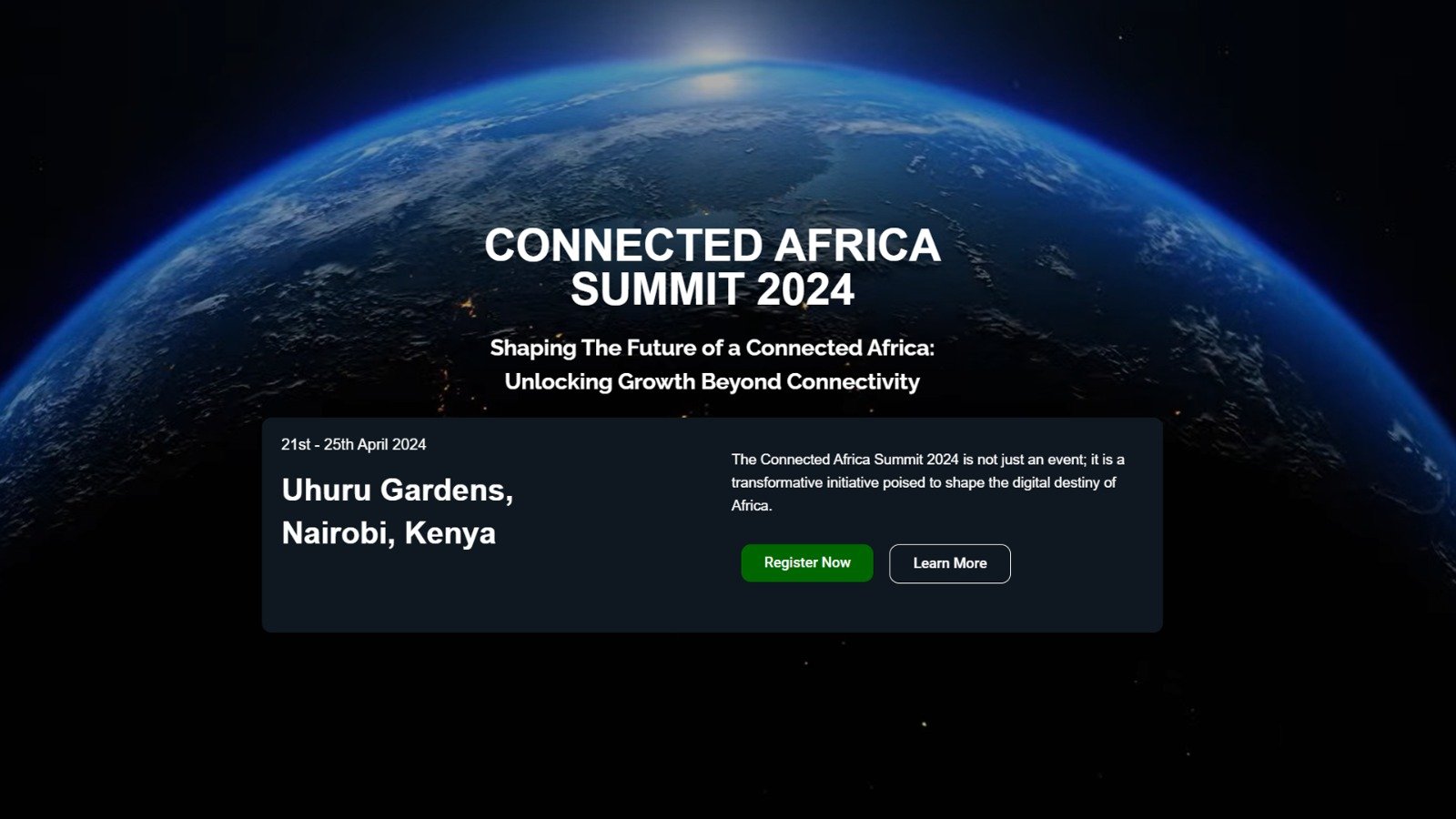
President William Ruto will lead more than 10,000 delegates from around Africa and the world alongside special dignitaries in the upcoming “The Connected African Summit 2024” at the Uhuru Gardens, Nairobi, between April 21st and 25. The summit is set to comprehensively map out the African digital economy and come up with a workable framework for the continent in the wake of rapidly changing global technological landscape.
Convened by the Ministry of ICT, the summit will be graced by high-profile dignitaries such as the outgoing African Union Chairperson, Moussa Faki, African Development Bank Group Chairperson Dr. Akinwumi, Adesina, President of the World Bank Group, Ajay Banga and the American Ambassador to Kenya, Meg Whitman are part of the high-profile guests who will grace the occasion. More than 8 cabinet ministers of ICT from across Africa will also be in attendance.
The summit will seek to underscore the relevance of the digital economy in driving economic growth and development. It will be an opportunity for African leaders, investors, and businesses to discuss on ways to harness the vast opportunities available in the digital economy, and while at it, address the barriers and other pressing issues affecting African economies.
The summit will also promote collaborations that can fuel the achievement of the Africa Digital Agenda 2063 and Vision 2030. The agenda seeks to address problems such as unemployment, inequality, environmental protection, and integration.
The 10,000+ delegates are drawn from various diverse sectors, and they will address problems such as the wide digital divide, fiscal constraints, critical infrastructural deficits in areas like data, energy, electricity, skills and education. By 2025, the digital economy in Africa will reach $180 billion contributing 5.2% to the continent’s GDP.
Present problems to be addressed include cybersecurity, data protection and innovation. With over 1.2 billion people, whose average age is 19, the continent’s technological potential is massive. The summit will also address how technology will help the African Continental Free Trade Area (AfCFTA) in the intra-African trade as the continent seeks to pursue a development path that is less reliant on finite resources and more environmentally sustainable.
Key areas of discussion will include:
- The marriage of the digital and the green technology will promote sustainable economic growth.
- Adaptation of financial systems and frameworks to support Africa’s digital development for public goods within a constrained fiscal space.
- The latest technological advancements across Africa’s regions, facilitating an exchange of ideas and showcasing homegrown innovations at the expo.
- Cultivate a Pan-African Digital Marketplace: Use the conference as a launchpad for a digital marketplace that promotes interconnectivity and access to technology solutions across the continent.
- Accelerate Digital Infrastructure Projects: Align stakeholders on actionable commitments to advance digital public infrastructure projects, with a focus on achieving tangible progress post-summit.
- Policy formulation of actionable directives that support conducive environment for technology growth and investment across Africa, with the focus on agile policy development such as AI Governance that does not stifle innovation, but ensure safety, security and inclusivity and builds public trust.
- Enhance Cyber Resilience: Develop a pan-African agenda for cybersecurity, aiming to establish common standards and protocols for collaboration and cooperation considering new cross border challenges by state and non-state actors on critical infrastructures.
- Focus on educational reforms that cater to digital skill in a fast-changing environment, aligning educational stakeholders to commit to curriculum agility and enhancements during the conference.
- Share innovative solutions and experiences, address unique challenges in technology adoption and environmental sustainability, and launch continental strategies for low-cost, sustainable development.
|
|
Register here: https://connected.go.ke/
